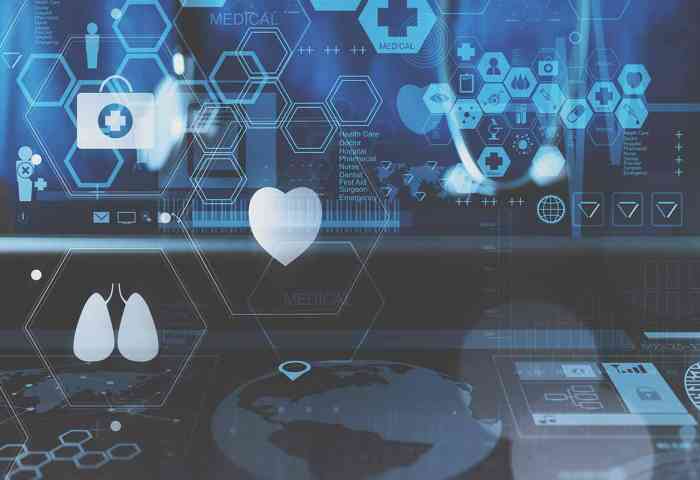Get started with Mizzou
Apply hereGraduate certificate
Transform your health care or policy career with an online graduate certificate in informatics for public health from the University of Missouri (Mizzou).
Data continues to advance health care and policy sectors — from electronic medical records to analyzing trends in population, community and environmental health. This 12 credit-hour, fully online certificate program meets the growing demand for health care professionals, information officers and community professionals trained in health informatics, health information technology and database management.
Bring more value to your current role, move up in your field or give yourself an edge in the job market. With courses tying these core informatics competencies to population health and care delivery, you’ll be ready to use your newly acquired health informatics knowledge in surveillance, prevention and health promotion. You’ll develop, assess and uncover solutions to current and future public health and policy issues.
Quick facts
Official name
Graduate Certificate in Informatics for Public HealthCampus
Program type
Graduate certificateAcademic home
College of Health Sciences | Department of Health SciencesDelivery mode
100% onlineAccreditation
Higher Learning CommissionCredit hours
12Estimated cost
$7,608.00*This cost is for illustrative purposes only. Your hours and costs will differ, depending on your transfer hours, your course choices and your academic progress. See more about tuition and financial aid.
Advance your career with an online graduate certificate in informatics for public health
Informatics shapes how the health care and health policy industries manage and access data, influencing medical records management, research, program development, care delivery and trend prediction. The University of Missouri College of Health Sciences' Department of Health Sciences not only notes these shifts and respective skill demands but pioneers their applications in and beyond the classroom. Course work emphasizes real-world use in health care, public health, policy and research. Faculty members, meanwhile, participate in or provide industry consulting.
As an introduction to the possibilities of public health informatics, this online graduate certificate enhances your knowledge of data collection, surveillance, reporting and health information exchange. Step up to the challenge in your organization or your first public health role by drawing meaningful insights from data, identifying trends, and influencing health services and community programs.
You’ll be equipped to:
- Connect informatics and information technology to improve public health research and services by analyzing data and influencing projects and strategic decisions
- Collect, process, store, use, manage and analyze data for public health purposes
- Uphold data standards, including for security, integrity, privacy and usage
- Develop, evaluate and deploy information systems designed to aid public health, health care and policy efforts
- Use informatics to gather information and make predictions involving clinical, environmental and population health
- Aid public health, policy and health care research efforts regarding disease prevention, preparedness and evaluation

Career prospects
Informatics has swiftly changed the delivery of health services and efforts to examine community trends. Expand your skillset as an information officer, health care administrator, researcher or community health worker to meet an increasing need for industry professionals well-versed in informatics, data and information system technology. Reflecting this, the Bureau of Labor Statistics predicts 9% more positions for medical records and health information specialists between 2020 and 2030.
Possible job titles include:
- Public health surveillance informatics specialist
- Health care administrator
- Public health analyst
- Informatics research assistant
- Clinical analyst
- Informaticist (population health, geographical, public health)
- Data scientist
Program structure
The online graduate certificate in informatics for public health involves four courses totaling 12 credit hours. You’ll take two required courses before exploring additional topics through two core courses or one core paired with one elective course. All courses are 100% online, and no on-campus visits are required.
Students typically complete the program in two to four semesters.
Courses
The structure of the online graduate certificate in informatics for public health exposes you to:
- Foundational public health knowledge, tools and theories used for research, communication, project management, surveillance and data exchange
- Statistical concepts and tools for data analysis
- Database and information system management tools and usage
- Python and SQL languages for using databases and analyzing data
- Consumer health informatics patterns and models
- Techniques for analyzing health care data
- Use of geographic information systems in public health
Review all required, core and elective courses and accompanying descriptions.
Delivery
100% onlineCalendar system
Semester-basedTypical program length
2 to 4 semestersTypical course load
Varies if full time or part timeSee all online programs offered through the College of Health Sciences.
Accreditation
The University of Missouri is accredited by the Higher Learning Commission, one of six regional institutional accreditors in the United States.
